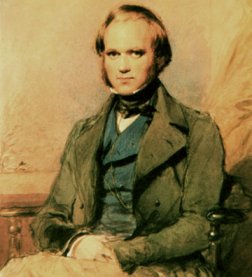
How Darwin rejected the doctrines of Christianity
stock.xchng
This is the pre-publication version which was subsequently revised to appear in Creation 31(2):12–14.
Charles Darwin grew up embracing the ‘intelligent design’ thinking of his day—William Paley’s renowned argument that the design of a watch implies there must have been an intelligent watchmaker, and so design in the universe implies there must have been an intelligent Creator. Concerning this, Darwin wrote, ‘I do not think I hardly ever admired a book more than Paley’s “Natural Theology”. I could almost formerly have said it by heart.’
Nevertheless, Darwin spent most of the rest of his life attempting to explain design in nature without the need for any purpose or a guiding intelligence. He labelled himself an agnostic, and gave us his ‘Religious Belief’ in his Autobiography, written in 1876 when he was 67.
1. Darwin rejected Genesis as true history
Darwin asserted that different species originated by the extremely slow process of evolution. However, he knew that Genesis taught that God had created plants, animals and man by separate sudden commands. Both premises could not be true. So either his theory or Genesis was in error. Which? He wrote:
‘I had gradually come, by this time [i.e. January 1839, when he was 29—Ed.], to see that the Old Testament from its manifestly false history of the world, with the Tower of Babel, the rainbow as a sign, etc., etc., and from its attributing to God the feelings of a revengeful tyrant, was no more to be trusted than the sacred books of the Hindoos [sic], or the beliefs of any barbarian.’4
Comment: Darwin embraced the wrong worldview. The ‘manifestly false history of the world’ is not that recorded in Genesis, but that of his theory and the long ages it requires.






